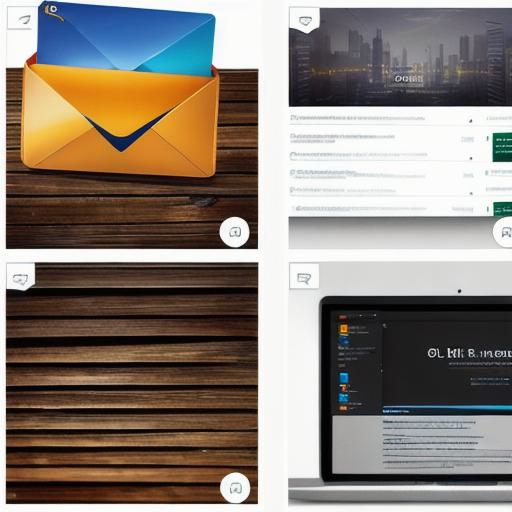Marketing is a crucial aspect of any business, and with the rise of digital marketing, small businesses now have more opportunities to reach their target audience than ever before. However, with so many options available, it can be overwhelming to choose the right tools to fit your needs. In this article, we will explore some of the best free marketing tools that small businesses can use to optimize their online presence and attract more customers.
1. Hootsuite
Hootsuite is a social media management tool that allows you to manage all of your social media accounts in one place. With Hootsuite, you can schedule posts, track engagement, and analyze your audience’s demographics. This tool is particularly useful for small businesses with limited resources as it allows them to manage multiple social media platforms efficiently.
2. Canva
Canva is a graphic design tool that allows you to create professional-looking graphics, flyers, and other marketing materials. With Canva, you can choose from pre-designed templates or customize your designs to fit your branding. This tool is ideal for small businesses with limited budgets as it offers a range of free templates and stock photos.
3. Google Analytics
Google Analytics is a web analytics service that allows you to track website traffic, user behavior, and other metrics that can help you optimize your website’s performance. With Google Analytics, you can set up goals, track conversions, and analyze your audience’s behavior. This tool is essential for any business looking to improve its online presence and attract more customers.
4. Mailchimp
Mailchimp is an email marketing platform that allows you to create and send targeted email campaigns. With Mailchimp, you can segment your email list based on demographics, interests, and behaviors. This tool is particularly useful for small businesses looking to build relationships with their customers and increase sales through targeted email campaigns.
5. Buffer
Buffer is a social media scheduling tool that allows you to schedule posts across multiple social media platforms. With Buffer, you can set up a posting schedule, track engagement, and analyze your audience’s demographics. This tool is ideal for small businesses looking to streamline their social media marketing efforts and save time.
6. Moz

Moz is an SEO software suite that helps businesses improve their search engine rankings. With Moz, you can track keywords, monitor backlinks, and analyze your website’s performance. This tool is essential for any business looking to increase its online visibility and attract more customers through search engines.
7. Trello

Trello is a project management tool that allows you to organize and prioritize tasks across multiple projects. With Trello, you can create boards, lists, and cards to track progress, set deadlines, and collaborate with team members. This tool is particularly useful for small businesses looking to improve their workflow and streamline their marketing efforts.
8. Google My Business
Google My Business is a free tool that allows businesses to manage their online presence across Google, including search and maps. With Google My Business, you can add your business information, respond to reviews, and create a virtual tour of your business. This tool is essential for any business looking to improve its local SEO and attract more customers in its area.
9. Ahrefs
Ahrefs is an SEO software suite that helps businesses analyze their website’s performance and competitors’ websites. With Ahrefs, you can track keywords, monitor backlinks, and analyze your website’s traffic. This tool is essential for any business looking to improve its online visibility and outrank its competitors in search engines.
10. Canva
Canva is a graphic design tool that allows you to create professional-looking graphics, flyers, and other marketing materials. With Canva, you can choose from pre-designed templates or customize your designs to fit your branding. This tool is ideal for small businesses with limited budgets as it offers a range of free templates and stock photos.
Case Studies: Success Stories Using Free Marketing Tools
Many small businesses have found success using free marketing tools. Here are a few case studies to illustrate how these tools can be used effectively:
1. Hootsuite
:
Hootsuite helped a small business owner named Sarah increase her social media following by 50% in just one month. Sarah used Hootsuite’s scheduling feature to post content across multiple platforms at the same time, which saved her time and allowed her to focus on other aspects of her business.
2. Mailchimp:
Mailchimp helped a small business owner named John increase sales by 30% through targeted email campaigns. John used Mailchimp’s segmentation feature to send personalized emails based on his customers’ interests and behaviors, which resulted in higher open rates and click-through rates.
3. Google Analytics
:
Google Analytics helped a small business owner named Sarah optimize her website’s performance and increase online sales. Sarah used Google Analytics to track user behavior, identify areas for improvement, and make data-driven decisions about her website’s design and content.
4. Moz:
Moz helped a small business owner named John improve his website’s search engine rankings and increase organic traffic. John used Moz’s keyword research feature to identify relevant keywords and optimize his website’s content, which resulted in higher search engine rankings and more traffic from search engines.
5. Canva:
Canva helped a small business owner named Sarah create professional-looking graphics for her social media accounts and website. Sarah used Canva’s templates to create customized designs that matched her branding, which helped her stand out from the competition and attract more customers.
Comparing Free Marketing Tools vs Paid Marketing Tools: Which is Right for You?
While paid marketing tools can be effective in reaching a larger audience quickly, free marketing tools offer many of the same benefits at no cost. Here are some key factors to consider when deciding whether to use free or paid marketing tools:
1. Budget: If you have limited resources, free marketing tools may be the best option as they do not require any financial investment. However, if you have a larger budget and want more advanced features, paid marketing tools may be worth considering.
2. Time commitment: Paid marketing tools often require more time to set up and manage than free alternatives. If you have limited time, free tools may be the best option as they are typically easier to use.
3. Complexity: Paid marketing tools often offer more complex features than free alternatives, which can make them more difficult to use. If you have limited technical skills or experience, free tools may be the best option as they are typically simpler to use.
4. Target audience: Some paid marketing tools offer more targeting options than free alternatives, which can help you reach a more specific audience. However, if you are just starting out and want to test the waters, free tools may be the best option as they offer many of the same benefits at no cost.
FAQs
Here are some frequently asked questions about free marketing tools for small businesses:
1. What is the best free marketing tool for social media management?
Hootsuite and Buffer are two popular options for social media management that offer a range of features for free.
2. Is Google Analytics free to use?
Yes, Google Analytics is completely free to use. It allows you to track website traffic, user behavior, and other metrics to help optimize your website’s performance.
3. Can I use Mailchimp for email marketing without paying?
Yes, Mailchimp offers a free plan that allows you to send up to 10,000 emails per month to up to 2,000 subscribers. However, if you need more advanced features, you may want to consider one of their paid plans.
4. Are there any free alternatives to Adobe Creative Suite?
Yes, there are many free alternatives to Adobe Creative Suite that offer similar design and graphic editing tools. Some popular options include Canva, GIMP, and Inkscape.
5. How can I improve my website’s search engine rankings for free?
There are several ways to improve your website’s search engine rankings for free, including optimizing your website’s content with relevant keywords, building high-quality backlinks, and improving your website’s loading speed.
Conclusion
Free marketing tools offer many benefits for small businesses looking to promote their products or services online. Whether you need help with social media management, email marketing, search engine optimization, or graphic design, there are plenty of free tools available that can help you achieve your goals. By using these tools effectively and comparing them to paid alternatives, you can find the best solution for your business needs and budget.




